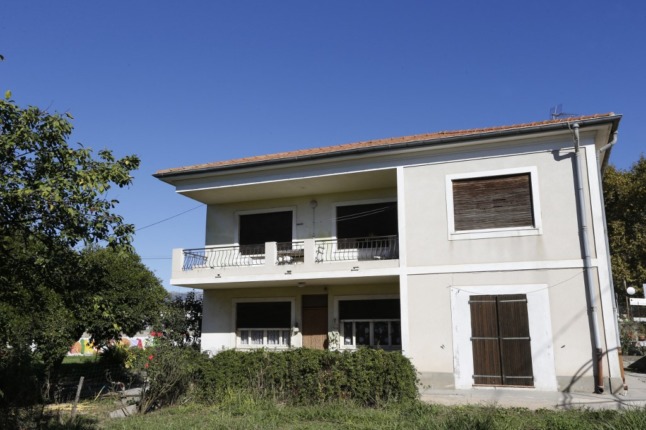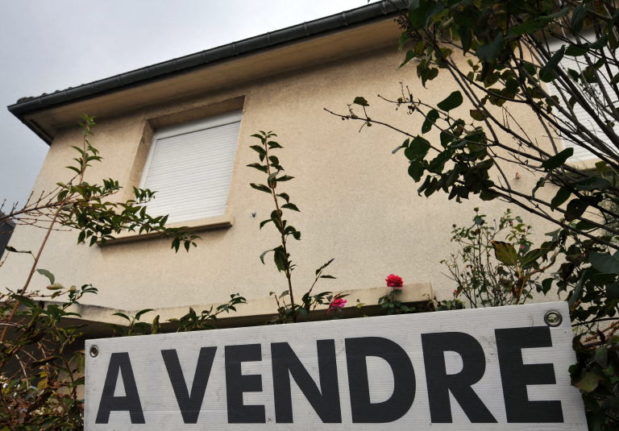Low interest rates
Interest rates on real estate loans have reached historically low levels – the lowest since 1949 according to the Observatoire crédit logement-CSA – suggesting that now is the time to buy if you’re relying on a loan or mortgage.
“We can reach rates below 0.90 percent, including on 25 year loans,” added Maël Bernier, spokesperson for the online broker Meilleurtaux.com. While that may not be available to all buyers, rates are certainly low contributing to a busy time in the housing market in France.
Metro extension
If you’re looking for property in Paris, the extension of one Metro line has just made six areas a lot more accessible.
Property prices in Paris tend to fall the further out you get into the suburbs, but what makes a major difference to the daily commute is whether you can take the Metro or are condemned to the frequently slow, crowded and unreliable RER trains that serve the outer suburbs.
The extension of a Metro line further out into the suburbs is therefore a big deal, and the completion of work on Line 13 has opened up Les Cortilles, Les Agnettes, Gabriel-Péri, Mairie-de-Clichy, Porte-de-Clichy and Brochant stations in north west Paris, raising property prices in the area. The extension of Line 11 into north east Paris is scheduled for completion next year.
The below infographic from Le Parisien shows how property prices fall the further out of central Paris you get.
Prix de l' #immobilier le long de la ligne 13 : passez le périph pour trouver des biens abordables >> https://t.co/mwcwKBBnfz pic.twitter.com/w6osXDHuGj
— Le Parisien | infographies (@leparisieninfog) October 14, 2021
Tax reminder
This week sees the deadline for the payment of the property owners’ tax, taxe foncière. Many people will have seen an increase in their bills and unfortunately this is part of a long-term trend that has seen property taxes skyrocket in recent years.
Airbnb rules
If you hope to make a little extra money by renting out your French property on Airbnb, you may need to check the rules first. France has introduced some quite strict controls on renting out property, even if it’s just for a few weeks a year, and rules are set by local authorities, meaning how strict it is depends on where you are.
In bad news for people hoping to rent out their property during the Olympics, Paris has the strictest controls after City Hall fought a long battle with the online rental platform.
READ ALSO The rules on renting your French property on Airbnb
Let’s move to . . . Morvan
If you’re really looking to get away from it all, France is spoiled for choice for remote and beautiful areas.
With a population roughly the same as the UK but a land mass three times bigger some parts of France, especially the central and eastern areas, are virtually empty.
If you love wilderness, check out Morvan, it’s actually a listed natural park, but even many French people have never heard of it. In the eastern part of France it has forests, lakes, hamlets, hiking trails and even the odd château.
We asked French writer Anne Brivet, whose family live in Morvan, to explain why it’s so good.
Hidden costs
But before you get too tempted by apparently bargain properties, we suggest checking out the extra costs that come with buying and owning French properties.
From notaire fees to taxes, there are more hidden extras than you might think.
READ ALSO Retiring to France – things you need to consider
French property vocab
This week’s word will take your right through from DIY to home décor – le coffre. Coffre is usually translated as a box, chest or trunk but it crops up in a lot of property-related situations. If you’re involved in a renovation you might need un coffre de chantier – toolbox – while if you’re decorating you might want un coffre à jouet (toy box) un lit coffre (a bed with storage space) or un coffre de jardin for outdoor storage.
Property tip of the week
Shutters are your friend. Shutters (les volets) are ubiquitous in France, but for people who have grown up in countries that don’t use them it can seem counter-intuitive to close up the shutters on a hot day.
In fact, shutters keep your property cosy in the winter and dramatically cut the heat if you keep them closed during the hottest part of the day in the summer.
So to stay comfortable as well as cut your heating/electric fan bills, make sure you use your shutters and – if your property does not have them – get them installed as quickly as possible.



 Please whitelist us to continue reading.
Please whitelist us to continue reading.
Member comments